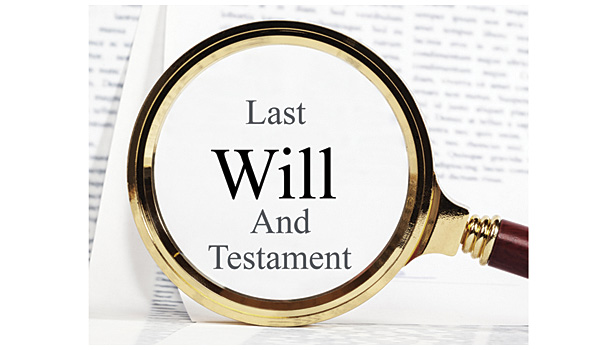I was 25 years old and my dad’s instructions to me and to my older brothers were to have an estate plan done and make a will. And that we were to participate in formalizing a buy-sell agreement for our family business.
My wife was really upset with me because she thought it was ridiculous for someone so young to go through the trouble of having a will put in place. But it was really as much for her protection and our future kids as it was for my business and my partners. The last thing you want is for the government to decide where your assets should go. Without a will and an estate plan, that’s just what could happen with your demise.
When you have partners in business whether they’re related to you or from outside the family, a plan for the five Ds is essential for heading off the devastating affects an untimely sickness or death can have on a business to survive, as well as incredible pain and suffering for the next of kin.
So what are the five Ds?
1. Death. Let’s face it … we don’t live forever. When you’re young you can feel invincible but life can turn fast. It’s expensive to die and without a good plan it can be ruinous to your family and your business partners.
2. Disability. You could be disabled from job-related accidents or walking across a street and getting hit by a car. I do know it happens. And if it did … what would you and your family do to address the bills and loss of future income? Plus, you may need to be replaced at your company so it can continue to function for your partners and their families.
3. Divorce. There could be a messy divorce from your spouse that handcuffs the business or it could be the growing desire to be free of your business partners. Once you want a divorce to happen, it’s too late to be planning for it.
4. Disaster. Natural catastrophes such as hurricanes, floods, earthquakes and more can wreak havoc. Sometimes, it’s local to just your business, such as a devastating fire, an earthquake or a tornado that’s put you and your business flat on your back.
5. Debt.Crippling debt can arise from mismanagement, killing the golden goose by sucking out too much money in perks, weak sales, crumbling economy and a whole lot more. There comes a time when bailing out may be better than crashing the plane into the ground and injuring others.
My goal is for you to not wait until the five Ds arise to address them because it’ll be too late.
The smart option
A good buy-sell agreement requires you to get professional advice.
The way I address this with my clients is to have them first gain clarity on what they want as an outcome should one or more of the five Ds happen. This is where it can make a lot of sense to bring in a certified financial planner to help you look at your personal assets and how the company fits into that puzzle.
With this work in place, it’s time to get both the accountant and attorney in the same room so they’re both on the same page. It’s worth every penny to do it this way because mistakes made will have big repercussions later on.
Once you have a plan, preventive steps should be taken that may involve key insurance policies, a defined payout over time that doesn’t cash-strap the business, life insurance policies on one another, disability policies and more. A great insurance person is worth his weight in gold when it comes to the smart options to consider.
You’ll need advice from both your accountant and your lawyer. The problem is they tend to only focus on their areas of concern and expertise, and they lose track of the bigger picture. For example, an accountant may only be interested in the tax consequences of the buy-sell while the attorney is only interested in the legal consequences of it. The goal of a smart buy-sell is to address both tax consequences and legal ramifications so it’s never one or the other. It’s both.
Finally, a buy-sell is only worth the paper it’s written on unless it’s always kept current and based on an objective measurable valuation. If a buy-sell isn’t kept current, it is likely to be challenged and going to court can wreak havoc on everyone at the company as it drags on and pulls attention away from the day-to-day operations.
Having an objective measurable valuation defined such as the median of three independent professional business evaluators can help. It also can be a set formula based on three years’ worth of sales, gross and net profit. There are many known and accepted ways to set a valuation that can be tweaked as it’s reviewed in a formal manner every year.
Al Levi has been helping plumbing and heating contractors solve problems and turn greater profits while making it possible for them to get their lives and free time back. To discover more, visit www.60SecondContractorSolution.com. And check out Al’s latest business adventure as part of Zoom Franchise Co. at www.zoomdrain.com/franchise-opportunity.
HELPFUL LINKS:


